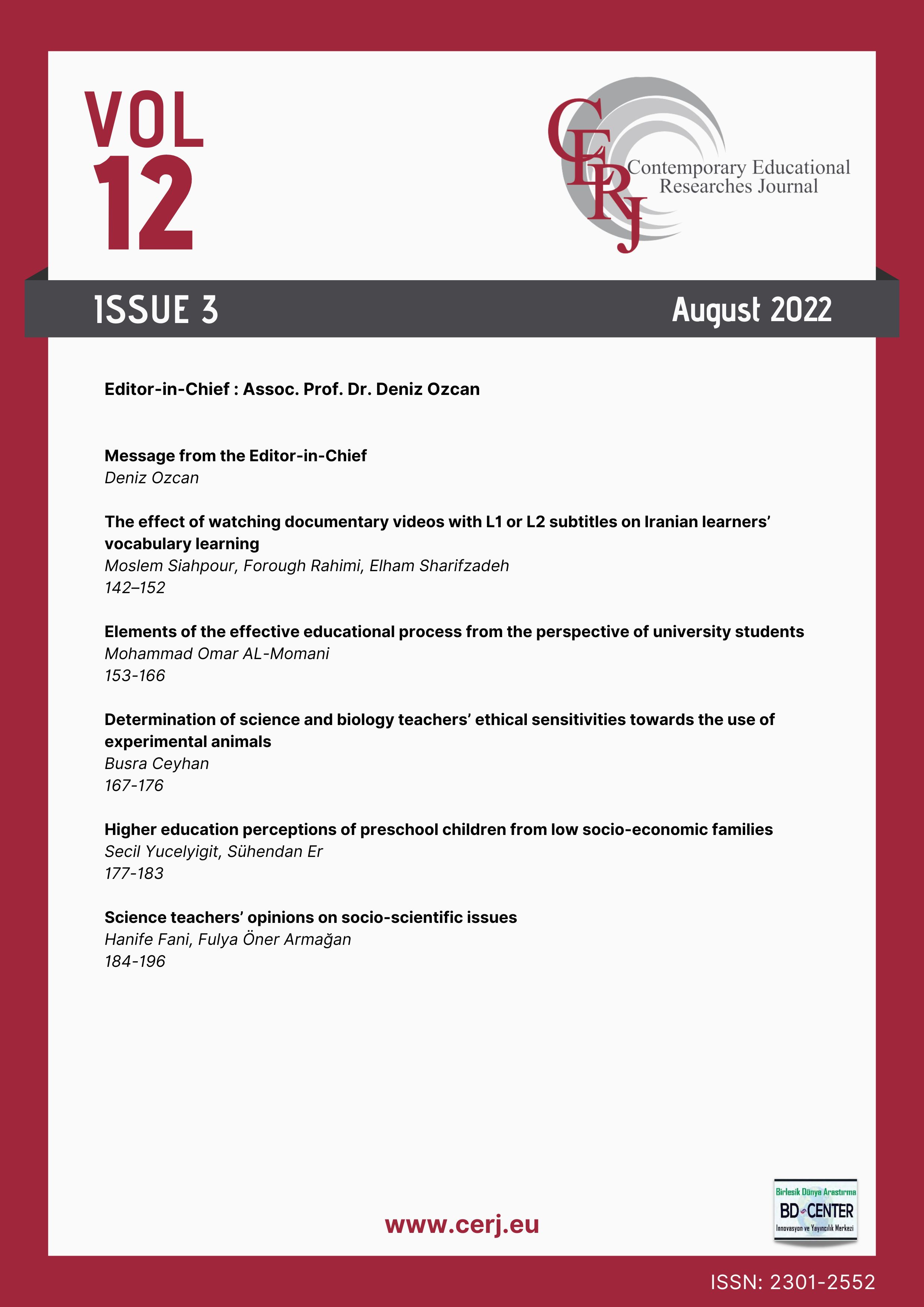Determination of science and biology teachers’ ethical sensitivities towards the use of experimental animals
Main Article Content
Abstract
It is important to determine the ethical sensitivities of teachers who have high potential to work with experimental animals due to their branches. With this purpose the current study aimed to determine science and biology teachers’ ethical opinions about the use of experimental animals. In order to collect data, the Questionnaire of Opinions about the Use of Experimental Animals developed by Yiğit, et al. (2015) was employed. The collected data were analyzed by using descriptive statistics, percentages, frequencies, mean values and t-test (N=70). While the science and biology teachers approached to the sixth item “Animals can be used in experiments in which they experience some pain for the benefits of humanity” with higher ethical sensitivity, the female participants were found to be more sensitive towards the second item “Alternative methods should be the first methods to be employed by researchers”. In light of the findings of the current study, it can be suggested that science and biology teachers who are more likely to be involved in experiments in which animals are used (according to the science and biology course contents published by YÖK) should be subjected to trainings during their pre-service and in-service years to raise their ethical sensitivities about the issue; thus, they can help their students more to recognize the value of animals.
Keywords: Teachers’ sensitivity, ethics, animals, laboratuary experiments
Downloads
Article Details

This work is licensed under a Creative Commons Attribution 4.0 International License.
Authors who publish with this journal agree to the following terms:
- Authors retain copyright and grant the journal right of first publication with the work simultaneously licensed under a Creative Commons Attribution License that allows others to share the work with an acknowledgement of the work's authorship and initial publication in this journal.
- Authors are able to enter into separate, additional contractual arrangements for the non-exclusive distribution of the journal's published version of the work (e.g., post it to an institutional repository or publish it in a book), with an acknowledgement of its initial publication in this journal.
- Authors are permitted and encouraged to post their work online (e.g., in institutional repositories or on their website) prior to and during the submission process, as it can lead to productive exchanges, as well as earlier and greater citation of published work (See The Effect of Open Access).
